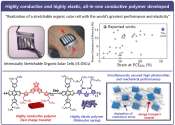In biology, an organism is any living system (such as animal, plant, fungus, or micro-organism). In at least some form, all organisms are capable of response to stimuli, reproduction, growth and development, and maintenance of homeostasis as a stable whole. An organism may either be unicellular (single-celled) or be composed of, as in humans, many billions of cells grouped into specialized tissues and organs. The term multicellular (many-celled) describes any organism made up of more than one cell.
The terms "organism" (Greek ὀργανισμός - organismos, from Ancient Greek ὄργανον - organon "organ, instrument, tool") first appeared in the English language in 1701 and took on its current definition by 1834 (Oxford English Dictionary).
Scientific classification in biology considers organisms synonymous with life on Earth. Based on cell type, organisms may be divided into the prokaryotic and eukaryotic groups. The prokaryotes represent two separate domains, the Bacteria and Archaea. Eukaryotic organisms, with a membrane-bounded cell nucleus, also contain organelles, namely mitochondria and (in plants) plastids, generally considered to be derived from endosymbiotic bacteria. Fungi, animals and plants are examples of species that are eukaryotes.
More recently a clade, Neomura, has been proposed, which groups together the Archaea and Eukarya. Neomura is thought to have evolved from Bacteria, more specifically from Actinobacteria.









